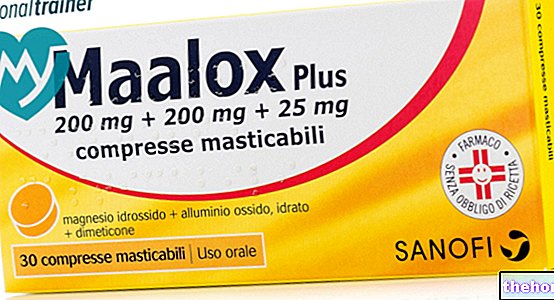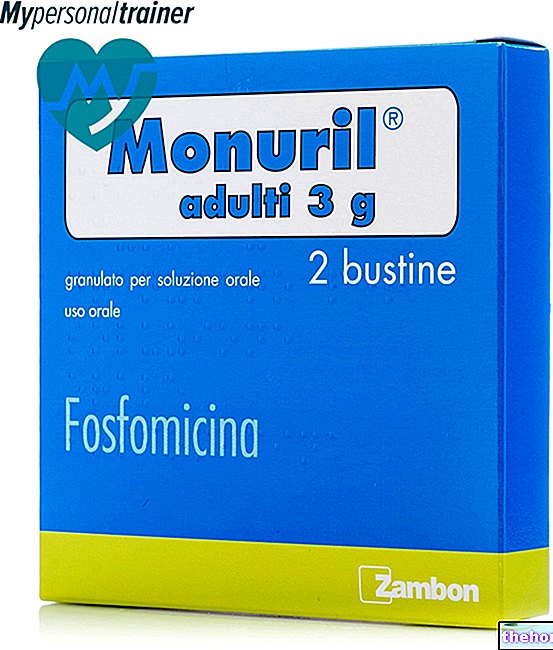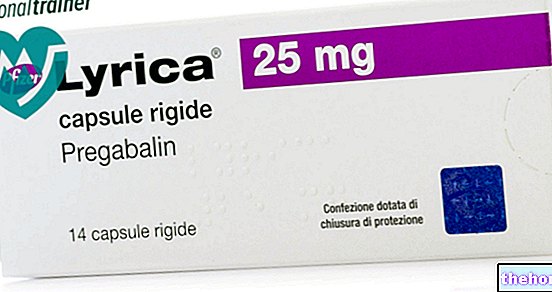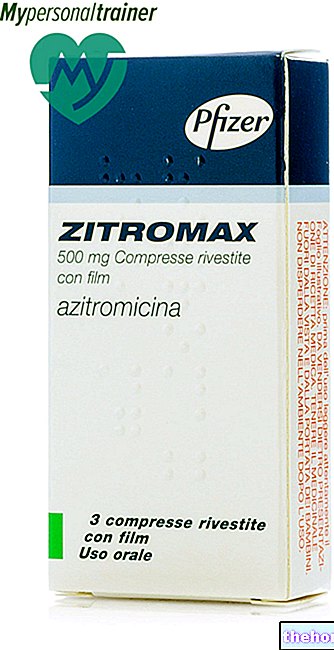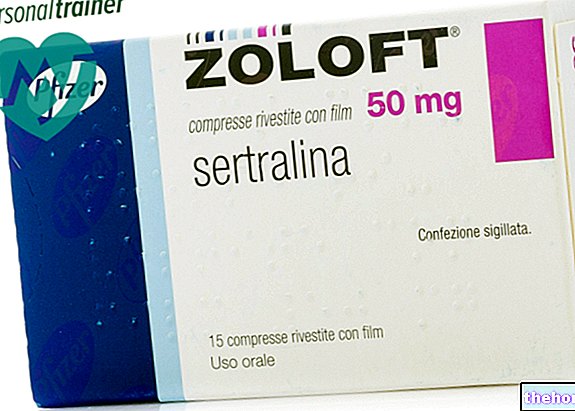Active ingredients: Sodium picosulfate, Light magnesium oxide, Anhydrous citric acid
CitraFleet, Powder for oral solution in sachet
Indications Why is Citrafleet used? What is it for?
CitraFleet is taken to cleanse the bowel before undergoing any diagnostic procedure that requires the bowel to be clean, eg. a colonoscopy (procedure that examines the inside of the intestine using a long flexible instrument inserted by the doctor through the anus) or x-ray examination. CitraFleet is a powder that smells and tastes of lemon. Contains two types of laxatives mixed in each sachet which, once dissolved in water and drunk, wash and clean the intestine. It is important that the bowel is empty and clean so that the doctor or surgeon can see clearly.
CitraFleet is indicated in adults (including the elderly) from 18 years of age.
Contraindications When Citrafleet should not be used
Do not take CitraFleet if:
- you are allergic to sodium picosulfate, magnesium oxide, citric acid or any of the other ingredients of this medicine (listed in section 6).
- suffer from congestive heart failure (the heart is unable to adequately pump blood around the body)
- have a condition called gastric retention (the stomach does not empty properly)
- have a "stomach ulcer (sometimes called a gastric or duodenal ulcer)
- have a blockage of the intestines or failure of normal bowel movements (sometimes called ileus)
- your doctor told you that you have a damaged bowel wall (also called toxic colitis)
- have an enlarged large intestine (also known as toxic megacolon)
- you have recently had nausea or vomiting
- is very thirsty or thinks you may be severely dehydrated
- your doctor told you that you have an enlarged abdomen due to fluid retention (called ascites)
- has recently undergone abdominal surgery, eg for appendicitis
- may have a perforated / damaged or blocked bowel (intestinal perforation or obstruction)
- your doctor has told you that you have active inflammatory bowel disease (for example Crohn's disease or ulcerative colitis)
- your doctor told you that your muscles are damaged, so their contents are released into the blood (rhabdomyolysis)
- have severe kidney problems or your doctor has told you that you have too much magnesium in your blood (hypermagnesaemia).
Precautions for use What you need to know before taking Citrafleet
Talk to your doctor or pharmacist before taking CitraFleet if:
- has had recent bowel surgery
- have kidney or heart problems
- you have a water and / or electrolyte (sodium or potassium) imbalance or are taking medicines that could affect the body's water and / or electrolyte (sodium or potassium) balance, such as. diuretics, corticosteroids or lithium
- have epilepsy or a history of seizures
- have low blood pressure (hypotension)
- are thirsty or think you may be mildly or moderately dehydrated
- you are elderly or physically weak
- have ever had low levels of sodium or potassium in the blood (also known as hyponatremia or hypokalaemia)
Interactions Which drugs or foods may change the effect of Citrafleet
CitraFleet may affect or be affected by other medicines taken concomitantly. If you are taking a medicine of the type listed below, your doctor may prescribe a different medicine or dose adjustment. So, if you haven't talked to your doctor yet, contact your doctor for instructions on:
- Oral contraceptives, as their effects may be reduced
- Medicines for diabetes or medicines to treat epilepsy (seizures), as their effects may be reduced
- Antibiotics, as their effects may be reduced
- Other laxatives, including bran
- Diuretics, such as furosemide, used to control fluid retention in the body
- Corticosteroids, such as prednisone, used to treat inflammation in diseases such as arthritis, asthma, hay fever, dermatitis and inflammatory bowel disease
- Digoxin, used to treat heart failure
- Non-steroidal anti-inflammatory drugs (NSAIDs), such as aspirin and ibuprofen, used to treat pain and inflammation
- Tricyclic antidepressants, such as imipramine and amitriptyline, and selective serotonin reuptake inhibitors (SSRIs), such as fluoxetine, paroxetine and citalopram, used for the treatment of depression and anxiety
- Antipsychotic drugs, such as haloperidol, clozapine and risperidone, used to treat schizophrenia
- Lithium, used to treat manic depression (bipolar disorder)
- Carbamazepine, used to treat epilepsy
- Penicillamine, used to treat rheumatoid arthritis and other ailments
Tell your doctor or pharmacist if you are taking, have recently taken or might take any other medicines.
Warnings It is important to know that:
Pregnancy, breastfeeding and fertility
If you are pregnant or breast-feeding, think you may be pregnant or are planning to have a baby, ask your doctor or pharmacist for advice before taking this medicine.
Driving and using machines
Do not drive or use any tools or machines if you start to feel tired or feel dizzy after taking CitraFleet.
CitraFleet contains potassium
CitraFleet contains 5 mmol (or 195 mg) of potassium. You should talk to your doctor about this if you have kidney problems or if you have been prescribed a low potassium diet.
Dose, Method and Time of Administration How to use Citrafleet: Posology
Always take this medicine exactly as your doctor or pharmacist has told you, as if the bowel is not completely evacuated you may need to repeat the hospital procedure. If in doubt, consult your doctor or pharmacist.
Be prepared for frequent bowel movements, with loose stools, following each dose of CitraFleet. This is normal and indicates that the medicine is working. You should make sure you have access to a toilet until the effects are gone. have disappeared. Drink a large amount of clear liquids, eg. sports drinks (electrolyte balance), light soups, herbal teas, tea or coffee without milk, diluted drinks / fruit juices or water to avoid dehydration. In general, you should try to drink 250ml (one full glass) every hour, until the effects of CitraFleet have subsided. Then drink clear liquids to quench your thirst until the hospital procedure is finished or as directed by your doctor.
It is important to follow a special (low residue) diet from the moment you start taking CitraFleet until after the procedure. You should always follow your doctor's dietary instructions. If you have any questions, contact your doctor or pharmacist.
Unless otherwise instructed by your doctor, you should not take more than the recommended dose within 24 hours.
Treatment plan
You should have received two CitraFleet sachets. Each sachet contains one adult dose. Doses should be taken 6-8 hours apart on the day before the hospital procedure.
INSTRUCTIONS FOR USE
Adults (including the elderly) from 18 years of age:
Dose 1 - to be taken before 8.00 am BEFORE BREAKFAST in the morning of the day before the procedure:
- Step 1 - Mix the contents of 1 sachet in a glass of cold tap water (about 150 ml)
- Step 2 - Mix for 2-3 minutes. If the solution heats up while mixing, wait until it has cooled before drinking it. When the solution is ready, drink it immediately. The solution will have a cloudy appearance.
Dose 2 - to be taken between 2.00 pm and 4.00 pm on the same day as dose 1: - Take the dose following the instructions above for steps 1 and 2.
Overdose What to do if you have taken too much Citrafleet
If you take more CitraFleet than you should, talk to your doctor or pharmacist immediately.
Side Effects What are the side effects of Citrafleet
Like all medicines, this medicine can cause side effects, although not everybody gets them. The known side effects of CitraFleet are described below and listed according to how often they occur:
Very common (more than 1 in 10 patients):
Abdominal pain.
Common (less than 1 out of 10 patients, but more than 1 out of 100 patients):
Abdominal distension (swollen abdomen), feeling thirsty, anal discomfort and proctalgia (anal or buttock pain), fatigue (tiredness), sleep disturbances, headache, dry mouth, nausea.
Uncommon (less than 1 in 100 but more than 1 in 1000 patients):
Dizziness, vomiting, inability to control bowel movements (faecal incontinence).
Other side effects for which the frequency of occurrence is not known (frequency cannot be estimated from the available data):
Anaphylaxis or hypersensitivity, which are severe allergic reactions. If you have difficulty breathing, start to get red or have any other symptoms that you think could indicate a serious allergic reaction, you should go to a hospital immediately.
Hyponatremia (low levels of sodium in the blood), epilepsy, seizures, orthostatic hypotension (low pressure on standing up, which can cause dizziness or unsteadiness), feeling confused, skin rashes such as hives, itching and purpura (bleeding under the skin).
Flatulence and pain.
This medicine is intended to cause very regular bowel movements, with soft, diarrhea-like stools. However, if your bowel movements become bothersome or cause for concern after taking this medicine, talk to your doctor.
Reporting of side effects
If you get any side effects, talk to your doctor or pharmacist. This includes any possible side effects not listed in this leaflet. You can also report side effects directly via the national reporting system at: www.agenziafarmaco.gov.it/it/responsabili. By reporting side effects you can help provide more information on the safety of this medicine.
Expiry and Retention
Keep this medicine out of the sight and reach of children. Do not store above 25 ° C. Do not use this medicine after the expiry date which is stated on the sachet after EXP. The expiry date refers to the last day of that month.
Do not throw any medicines via wastewater or household waste. Ask your pharmacist how to throw away medicines you no longer use. This will help protect the environment.
Composition and pharmaceutical form
What CitraFleet contains
- The active ingredients are sodium picosulfate 10.0 mg, light magnesium oxide 3.5 g, anhydrous citric acid 10.97 g per sachet.
- The other ingredients are potassium hydrogen carbonate, sodium saccharin, lemon flavor (lemon flavor, maltodextrin, tocopherol E307). See paragraph 2.
What CitraFleet looks like and contents of the pack
CitraFleet is a powder for oral solution in sachet, supplied in packs of 2, 50, 100, 200, 500 or 1000 sachets that contain white powder crystals. Each sachet contains one adult dose.
Not all pack sizes may be marketed.
Source Package Leaflet: AIFA (Italian Medicines Agency). Content published in January 2016. The information present may not be up-to-date.
To have access to the most up-to-date version, it is advisable to access the AIFA (Italian Medicines Agency) website. Disclaimer and useful information.
01.0 NAME OF THE MEDICINAL PRODUCT
CITRAFLEET, POWDER FOR ORAL SOLUTION IN SACHET
02.0 QUALITATIVE AND QUANTITATIVE COMPOSITION
Each sachet (15.08 g) contains the following active ingredients:
Each sachet also contains 5 mmol (or 195 mg) of potassium (see section 4.4.).
For the full list of excipients, see section 6.1.
03.0 PHARMACEUTICAL FORM
Powder for oral solution in sachet.
White crystalline powder with lemon flavor.
04.0 CLINICAL INFORMATION
04.1 Therapeutic indications
To evacuate the bowel before undergoing any diagnostic procedure that requires bowel emptying, eg. colonoscopy or x-ray examination.
04.2 Posology and method of administration
Method of administration
Oral.
A low residue diet is recommended the day before the hospital procedure. To avoid dehydration during treatment with CitraFleet, it is recommended that you drink approximately 250ml of water or other clear liquid every hour while the evacuation effect continues.
Instructions for reconstitution
Refer to section 6.6.
Adults (including the elderly) from 18 years of age
One sachet reconstituted in water according to the instructions, taken before 8.00 on the day preceding the procedure. A second sachet 6-8 hours later.
04.3 Contraindications
Hypersensitivity to any of the excipients of the product, congestive heart failure, severe dehydration, hypermagnesaemia, gastric retention, gastrointestinal ulcer, toxic colitis, toxic megacolon, ileus, nausea and vomiting, ascites, surgical acute abdominal disorders such as acute appendicitis, and known or suspected gastrointestinal obstruction or perforation.
Do not use in patients with rhabdomyolysis, as laxatives can induce rhabdomyolysis and thereby exacerbate the disease.
Do not use in patients with active inflammatory bowel disease, eg. Crohn's disease, ulcerative colitis.
In patients with severely impaired renal function, accumulation of magnesium in the plasma may occur. In such cases, another preparation must be used.
04.4 Special warnings and appropriate precautions for use
CitraFleet should not be used as a routine laxative.
CitraFleet may rarely lead to serious and potentially fatal cases of electrolyte disturbances in frail or debilitated elderly patients. Therefore, the benefit-risk balance of CitraFleet should be carefully considered before starting treatment in this risk population.
Particular care should be taken when prescribing CitraFleet to any patient regarding known contraindications and particular attention should be paid to the "importance of" adequate hydration and, in at-risk populations (as defined below), to the importance of measuring baseline electrolyte levels. and post-treatment.
Elderly and debilitated patients and patients at risk of hypokalaemia or hyponatremia may require special attention.
CitraFleet should be used with caution in patients with known fluid and / or electrolyte disturbances or who are taking medications that may affect fluid and / or electrolyte balance, eg. diuretics, corticosteroids, lithium (see section 4.5).
Caution should be exercised in patients with recent gastrointestinal surgery or with renal impairment, mild to moderate dehydration, hypotension or heart disease.
The intestinal washing period should not exceed 24 hours because a longer preparation can increase the risk of water and electrolyte imbalance.
CitraFleet may alter the absorption of regularly prescribed oral medicinal products and should be used with caution, eg there have been isolated reports of seizures in antiepileptic treated patients with previously controlled epilepsy (see sections 4.5 and 4.8).
This medicine contains 5 mmol (or 195 mg) of potassium per sachet. This should be taken into account in patients with impaired renal function or in patients on a controlled potassium diet.
04.5 Interactions with other medicinal products and other forms of interaction
As a purgative, CitraFleet increases the speed of gastrointestinal transit. The absorption of other orally administered medicinal products (eg antiepileptics, contraceptives, antidiabetics, antibiotics) could therefore be changed during the treatment period (see section 4.4). Tetracyclines and fluoroquinolone antibiotics and penicillamine should be taken at least 2 hours before and not less than 6 hours after administration of CitraFleet, to avoid chelation with magnesium.
The effectiveness of CitraFleet is reduced by volume laxatives.
Caution should be exercised in patients already treated with drugs that may be associated with hypokalaemia (such as diuretics or corticosteroids, or drugs in which hypokalaemia poses a particular risk, eg cardiac glycosides). Caution is also advised when CitraFleet is used in patients treated with NSAIDs or drugs known to induce SIADH, e.g. tricyclic antidepressants, selective serotonin reuptake inhibitors, antipsychotic drugs and carbamazepine, as these drugs may increase the risk of water retention and / or electrolyte imbalance.
04.6 Pregnancy and lactation
No clinical data on exposed pregnancies or reproductive toxicity data are available for CitraFleet. Since picosulfate is a stimulant laxative, it is preferable to avoid the use of CitraFleet during pregnancy as a safety measure.
There is no experience of the use of CitraFleet in breastfeeding women. However, due to the pharmacokinetic properties of the active substances, treatment with CitraFleet in breastfeeding women could be considered.
04.7 Effects on ability to drive and use machines
CitraFleet may cause fatigue or dizziness, possibly as a result of dehydration, and this may have a mild or moderate effect on the ability to drive and use machines.
04.8 Undesirable effects
The most common adverse events reported in clinical trials using the combination of sodium picosulfate and magnesium citrate were related to the direct effects on the intestine (abdominal pain and nausea) and the consequences of diarrhea and dehydration (sleep disturbances, dry mouth, thirst, headache and fatigue).
Undesirable effects are listed below, broken down by MedDRA System Organ Class and Preferred Term, using the following frequency convention: very common (≥ 1/10); common (≥ 1/100,
Disorders of the immune system
Frequency not known: Anaphylactoid reaction, hypersensitivity.
Metabolism and nutrition disorders
Frequency not known: hyponatremia.
Psychiatric disorders
Common: sleep disturbances.
Nervous system disorders
Common: headache
Uncommon: dizziness
Frequency not known: epilepsy, grand mal convulsion, convulsion, confusional state
Vascular pathologies
Uncommon: orthostatic hypotension.
Gastrointestinal disorders
Very common: abdominal pain
Common: dry mouth, nausea, abdominal distension, anal discomfort, proctalgia
Uncommon: vomiting, faecal incontinence
Frequency not known: diarrhea *, flatulence
* Diarrhea is the primary clinical effect of CitraFleet.
Skin and subcutaneous tissue disorders
Frequency not known: rash (including erythematous rash and maculo-papular rash), urticaria, pruritus, purpura
General disorders and administration site conditions
Common: thirst, fatigue
Frequency not known: pain.
Hyponatremia with or without associated seizures has been reported (see section 4.4). In epileptic patients, there have been reports of seizures / grand mal seizures without associated hyponatremia (see 4.4 and 4.5).
04.9 Overdose
There have been no reports of overdose with CitraFleet or with similar combinations of sodium picosulfate and magnesium citrate. However, due to its mode of action, overdose of CitraFleet can be expected to cause profuse diarrhea with dehydration and loss of electrolytes. Dehydration may also cause orthostatic hypotension and dizziness. Dehydration and electrolyte imbalances should be corrected with fluids. and electrolytes, as needed.
05.0 PHARMACOLOGICAL PROPERTIES
05.1 Pharmacodynamic properties
Pharmacotherapeutic group: Sodium picosulfate, combinations, ATC code: A06A B58
The active ingredients in CitraFleet are sodium picosulfate, a stimulant purgative which acts locally in the colon, and magnesium citrate which acts as an osmotic laxative by retaining fluids in the colon. The action is a powerful "washing" effect, associated with the stimulation of peristalsis, to evacuate the intestine before undergoing an X-ray, colonoscopy or surgery. The product is not intended for use as a routine laxative.
05.2 "Pharmacokinetic properties
The two active ingredients are locally active in the colon and neither is absorbed in detectable quantities.
In patients with severely impaired renal function, accumulation of magnesium in the plasma may occur.
05.3 Preclinical safety data
Prenatal development studies in rats and rabbits revealed no teratogenic potential after oral administration of sodium picosulfate up to 100 mg / kg / day, but embryotoxicity was observed in both species at these doses. In rats, daily doses of 10 mg / kg during late gestation (fetal development) and lactation reduced body weight and survival of offspring. Male and female fertility was not affected by oral doses of sodium picosulfate up to 100. mg / kg.
06.0 PHARMACEUTICAL INFORMATION
06.1 Excipients
Potassium hydrogen carbonate.
Sodium saccharin.
Lemon flavor (lemon flavor, maltodextrin, tocopherol E307).
06.2 Incompatibility
Not relevant.
06.3 Period of validity
Closed sachets: 30 months.
06.4 Special precautions for storage
Do not store above 25 ° C.
06.5 Nature of the immediate packaging and contents of the package
The powder is supplied in single-dose sachets containing 15.08 g. The sachets are contained in packs of 2, 50, 100, 200, 500 and 1000 sachets or 50 sachets (hospital pack). The sachet consists of a polyester layer, an aluminum intermediate layer and an internal polyethylene layer.
Not all pack sizes may be marketed.
06.6 Instructions for use and handling
Instructions for reconstitution
Reconstitute the contents of one sachet in a glass of water (about 150 ml). The resulting solution appears cloudy. Stir for 2-3 minutes and drink the solution. If the solution heats up, wait to drink it until it is sufficiently cooled.
07.0 MARKETING AUTHORIZATION HOLDER
Laboratorios Casen-Fleet S.L.U.
Autovìa de Logroño Km 13,300
50180 UTEBO (Zaragoza - Spain)
Sales dealer
Italian Biochemical Institute G. Lorenzini S.p.A.
Via Fossignano, 2 - 04011 Aprilia (LT)
08.0 MARKETING AUTHORIZATION NUMBER
Citrafleet Powder for oral solution 2 sachets - AIC n. 038254013 / M
Citrafleet Powder for oral solution 50 sachets - AIC n. 038254025 / M
09.0 DATE OF FIRST AUTHORIZATION OR RENEWAL OF THE AUTHORIZATION
April 20, 2011
10.0 DATE OF REVISION OF THE TEXT
April 20, 2011

